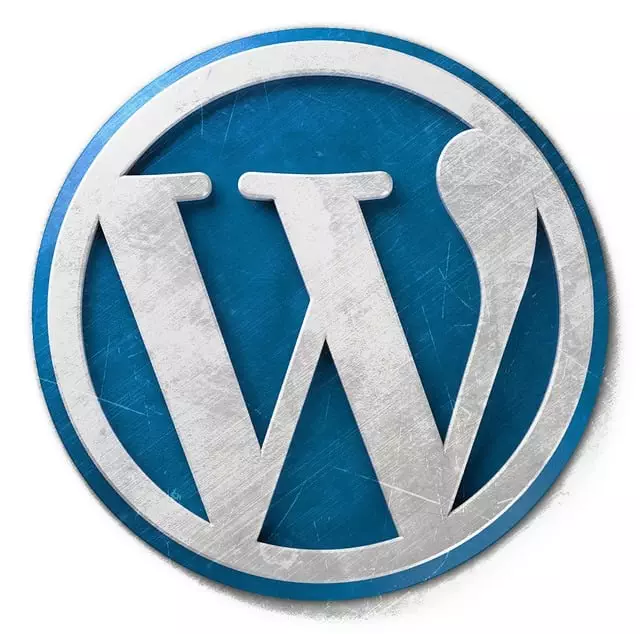Troubleshooting WordPress websites designed in Toledo or anywhere else requires understanding and addressing common errors like PHP/HTML syntax issues, plugin compatibility problems, and theme conflicts. Key to success are advanced debugging tools (e.g., Debug Bar, WP-Debug), keeping plugins up-to-date, using logging techniques for security, and performance optimization through minification, caching, and CDNs. Top-tier WordPress designers in Toledo leverage these practices and plugins to ensure secure, stable, visually stunning sites with enhanced user experiences, driving business success.
For every WordPress website designer in Toledo, debugging is an essential skill to master. From common errors to intricate bugs, understanding how to navigate these challenges efficiently is key to delivering high-quality WordPress design services. This article equips you with powerful WordPress debugging techniques, including leveraging built-in tools, ensuring plugin compatibility, implementing advanced logging, optimizing code for faster loading, and best practices for ongoing maintenance and troubleshooting. Discover how these strategies enhance your workflow and the overall performance of your WordPress design services.
- Understanding WordPress Errors: Common Issues Faced by Designers
- Utilizing Built-in Debugging Tools for Efficient Problem Solving
- The Role of Plugin Compatibility in Maintaining Smooth Functionality
- Advanced Logging Techniques to Track Down Elusive Bugs
- Code Optimization and Performance Enhancement Tips for Faster Loading Websites
- Best Practices for Effective WordPress Website Maintenance and Troubleshooting
Understanding WordPress Errors: Common Issues Faced by Designers
When it comes to troubleshooting a WordPress website designed in Toledo or any other location, understanding the underlying errors is crucial for effective debugging. Designers often encounter various challenges while working with this popular content management system (CMS). Common issues range from simple syntax errors in PHP and HTML to more complex problems related to plugin compatibility and theme conflicts. For instance, a WordPress website designer might face difficulties when integrating third-party plugins, leading to unexpected behavior or breaking functionality.
WordPress design services often involve customizing themes, adding custom code, and using various plugins to enhance the site’s features. However, these modifications can introduce errors if not implemented correctly. Designers should be proficient in identifying issues such as missing or incorrect file permissions, outdated plugin versions causing compatibility problems, or conflicts between different plugins that lead to white screens or other critical errors on the website. Utilizing developer tools, error logs, and WordPress plugins designed for debugging can significantly aid in troubleshooting and ensuring a seamless user experience for WordPress websites.
Utilizing Built-in Debugging Tools for Efficient Problem Solving
WordPress offers a suite of built-in debugging tools that can greatly assist website designers and developers based in Toledo or anywhere else. These tools are invaluable for identifying and fixing issues within your WordPress website, especially when troubleshooting complex problems. One such tool is the Debug Bar, which provides real-time access to various performance metrics, database queries, and PHP errors. By enabling this bar, you gain immediate insights into what’s happening behind the scenes of your site, making it easier to pinpoint the root cause of any anomalies.
Additionally, WordPress plugins designed for designers play a crucial role in enhancing debugging efficiency. Plugins like WP-Debug and Debug Log provide detailed logs of server errors, PHP warnings, and notice messages. These logs can be incredibly helpful when you need to troubleshoot specific design issues or problems with custom code implementations. With the right combination of built-in tools and specialized plugins, WordPress website designers can streamline their debugging process, ensuring that any technical hurdles are overcome swiftly and effectively.
The Role of Plugin Compatibility in Maintaining Smooth Functionality
In the realm of WordPress development and design, ensuring smooth functionality is paramount, especially for a seamless user experience on any WordPress website designer Toledo creates. One often-overlooked aspect that plays a significant role in maintaining this harmony is plugin compatibility. The vast library of WordPress plugins for designers offers powerful tools to enhance and customize a site’s features, but their seamless integration is crucial. In the bustling digital landscape, where design trends evolve swiftly, keeping plugins up to date and ensuring they play well with each other is essential.
WordPress design services often involve crafting intricate websites that rely on multiple plugins for various functionalities. A designer or developer in Toledo must be adept at selecting compatible plugins that communicate effectively, avoiding potential conflicts that could disrupt the site’s performance. This compatibility checks not only ensures the website functions flawlessly but also allows for efficient troubleshooting and maintenance, addressing issues promptly. With the right approach to plugin management, a WordPress website can deliver an engaging, error-free experience for its audience.
Advanced Logging Techniques to Track Down Elusive Bugs
In the quest to eliminate even the most elusive bugs plaguing a WordPress website designed in Toledo or enhanced with custom WordPress design services, advanced logging techniques prove invaluable. Beyond the standard error logs, WordPress plugins for designers offer sophisticated tracking capabilities that record every action and interaction within the site’s backend. These tools capture detailed information about user activities, API calls, and database queries, providing a comprehensive trail to follow when debugging complex issues.
By leveraging these advanced logging methods, website designers and developers can efficiently isolate problem areas, identify potential security vulnerabilities, and optimize overall performance. With access to such intricate data, they can make informed decisions, implement targeted solutions, and ensure the smooth functioning of their WordPress websites, ultimately enhancing user experiences for clients who rely on their design expertise.
Code Optimization and Performance Enhancement Tips for Faster Loading Websites
When it comes to debugging and optimizing your WordPress site, performance plays a crucial role in user experience. As a WordPress website designer Toledo, understanding how to streamline your site’s loading time can significantly enhance its overall efficiency. One of the key aspects is code optimization, where you can employ various techniques to reduce page load times without compromising functionality. This involves minifying and combining CSS and JavaScript files, enabling browser caching, and leveraging content delivery networks (CDNs) to distribute your website’s assets globally.
Utilizing WordPress plugins for designers designed for performance enhancement can be a game-changer. These plugins often include features like lazy loading for images, which delays the loading of non-critical resources until they are needed, thus speeding up initial page load times. Additionally, keeping your WordPress design services updated and regularly auditing your website’s performance using built-in tools or third-party applications can help identify bottlenecks and areas for improvement, ensuring a fast and responsive WordPress website that delivers an excellent user experience for visitors from Toledo and beyond.
Best Practices for Effective WordPress Website Maintenance and Troubleshooting
Maintaining a seamless and trouble-free WordPress website is paramount for any online presence, especially for businesses in competitive markets like Toledo where a well-crafted digital front is key to success. Top-tier WordPress website designers in Toledo leverage a blend of best practices and debugging techniques to ensure their clients’ sites not only look exceptional but also function flawlessly. These practices encompass regular updates to both core software and plugins to patch security vulnerabilities and introduce stability improvements.
Moreover, integrating robust monitoring tools and implementing structured troubleshooting protocols enable designers to proactively identify and rectify issues before they impact user experience. Leveraging WordPress design services that incorporate these best practices ensures businesses in Toledo not only have a visually stunning online hub but also a reliable, secure, and high-performing platform for engaging their audience and driving conversions. Utilizing the right plugins can greatly enhance a designer’s efficiency, providing tools tailored to streamline site management and troubleshooting, further reinforcing the overall WordPress website design experience.


